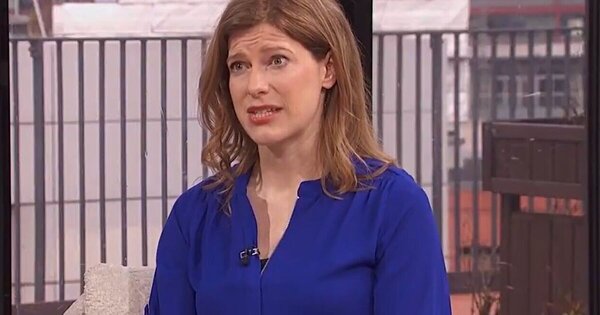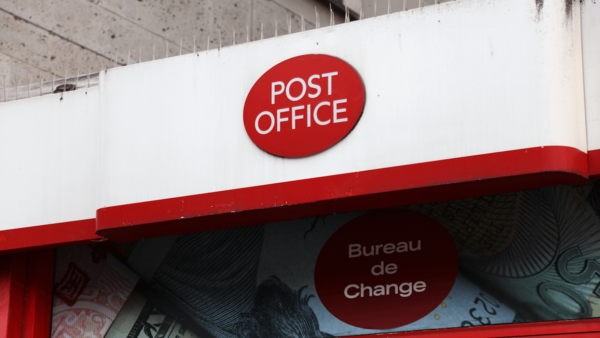Right, let's begin!
Did you know most second homeowners pay thousands more in tax than they need to?
We've researched How To Avoid Capital Gains Tax On Second Homes In The UK so you don't have to!
From timing your sale to maximizing reliefs, these proven strategies could save you a fortune.
With property values soaring, knowing these tax-saving tricks has never been more crucial.
Come on, let's protect your property profits together!
Here Are The Tops Tips:

1. Timing Your Sale Strategically
When it comes to dodging capital gains tax on your second home, it's all about playing the calendar game.
The tax year (April 6th to April 5th) is your secret weapon.
Here's a trick: spread those chargeable gains across tax years.
We've helped clients use their CGT annual exempt amount twice by selling on either side of the tax year boundary. It's like finding free money!
And don't forget about your other income. We once saved a client a bundle by delaying a sale to a year when their income was lower, keeping them in the basic rate band for CGT. Smart stuff.
Just remember, sometimes a great sale price trumps tax savings. It's all about balance!
2. Maximise Your Principal Private Residence Relief
We've helped clients slash capital gain tax with Principal Private Residence (PPR) relief, even on second homes.
One client saved a bundle by proving their holiday home was briefly their 'main residence'.
It's all about knowing the rules and timing it right.
The final period exemption is our secret weapon.
We've timed sales to make those last 9 months count, working the tax year to our clients' advantage.
You'd be amazed how capital gains tax rates can drop with smart planning.
HMRC scrutinises PPR claims, so we're meticulous with records.
Every estate agent fee counts for capital gains tax purposes.
Our attention to detail has saved many clients from HMRC headaches and unexpected tax bills.


3. Leverage Lettings Relief
We've seen the 2020 lettings relief changes throw many of our second home clients for a loop.
That new shared occupancy rule has made avoiding capital gains tax trickier, but not impossible.
For those who qualify, it's still a gem.
We recently helped a client slash their capital gains tax bill using the lowest of their private residence relief, £40,000, or the chargeable gain from letting.
It's a clever way to reduce gains tax if you fit the criteria.
Our top tip? Meticulous record-keeping. We've fended off many HMRC inquiries with solid paperwork.
Just last month, we saved a client from a hefty CGT liability thanks to detailed occupancy records.
While it's not the universal capital gains reducer it once was, we're still using lettings relief to save our clients thousands.
4. Understand Your Capital Gains Tax Allowance
Heads up! The annual exemption's down to £3,000. Ouch, right?
But here's a pro tip: time your property sales to use two years' allowances.
We've seen it work wonders.
Got a partner? Well then you may be in luck.
Asset transfers between civil partners can double your tax-free gains. It's a nifty little trick that really pays off.
Remember, it's not just about CGT. Factor in corporation tax and other income to avoid those pesky higher tax payable brackets on your taxable gains.
And please, keep those occupation logs detailed. Trust us, good records of actual and deemed occupation can be your best friend come tax time.


5. Offset Gains with Capital Losses
At Pie Tax, we've seen capital losses work wonders against Capital Gains Tax.
They're a powerful tool to reduce your CGT liability.
You can offset gains with losses, even from previous tax years.
We once helped a client use an old property loss to slash tax on current investments.
Talk about a silver lining!
But beware of pitfalls. Losses on your main residence or personal possessions don't count.
And don't forget to report losses to HMRC within four years.
Remember, it's not just about current gains. Carrying losses forward can be a game-changer for future tax planning.
It's all about playing the long game with your chargeable assets.
6. Invest in Tax-Efficient Vehicles
We've seen ISAs and pensions work wonders for Pie Tax clients aiming to avoid capital gains tax.
Stocks and Shares ISAs let you invest in REITs tax-free - it's like a supercharged tax-free allowance!
We've helped clients use SIPPs to hold commercial property, earning rental income without triggering a capital gains tax bill. It's a smart way to sidestep gains tax.
For our high-flyers, offshore investment bonds are gold.
They defer capital gains and offer flexible withdrawals.
We've used them to spread clients' capital gains tax allowance over years, slashing how much they pay capital gains tax.
Remember, while you can't dodge tax entirely, smart investing can significantly trim your capital gains tax bill.


7. Consider Gifting or Transferring Property
Property transfers can be a real minefield for UK residents when it comes to CGT liability.
Here's a pro tip: when gifting property, it's treated as a disposal at market value for Capital Gains Tax (CGT).
Sounds scary, but don't panic! Remember to deduct costs like purchase price and selling costs.
It's amazing how many people overlook this little gem.
For you basic rate taxpayers, spousal transfers are often a goldmine.
They're typically CGT-free - like finding free money! But watch out with buy-to-let property transfers; they can be trickier than they look.
Trusts can be brilliant for managing future gains on other assets, but they're not for the faint-hearted.
They've helped many savvy folks pass on property while keeping some control. Just remember to factor in your personal exemption and pension contributions too.
It all adds up!
8. Reinvest in Another Property
Smart reinvestment can slash your taxable gain on residential property.
Timing is key - sell and buy in different tax years for potential CGT savings.
Don't overlook those improvement costs either!
Got multiple homes? The Principal Private Residence (PPR) nomination is your secret weapon.
Designate your 'main' home wisely to reduce gains tax on second properties.
For serial investors, consider a limited company for your portfolio.
It's tax-efficient for investment property, but watch out for different income tax rules.
And here's a pro tip: Enterprise Investment Schemes can defer CGT from a property sale. It's complex, but potentially lucrative.


9. Explore Business Property Relief
Business Property Relief (BPR) is a game-changer for slashing tax liabilities on second properties.
Our clients often turn holiday homes into furnished holiday lets, not just for extra cash, but to unlock a treasure chest of tax benefits.
It's a solid strategy for reducing capital gains tax and inheritance tax.
HMRC's no pushover, though. Qualifying requires running a genuine business - think top-notch service and serious marketing.
Our advice? Keep records like your financial life depends on it. Every estate agent fee and advertising cost counts.
Mastering the tax year is crucial for meeting letting criteria.
Play it right, and avoiding capital gains tax becomes second nature. But tread carefully - BPR rules are as tricky as they come.
One misstep and you're back at the starting line.
10. Seek Professional Tax Advice
We've guided countless clients through the UK residential property tax maze.
A good advisor uncovers hidden tax reliefs you never knew existed.
We've saved clients bundles on stamp duty and capital gains through savvy market value assessments.
Our approach? We speak human, not just tax. Whether it's property value fluctuations or leveraging costs incurred, we've got the inside track.
And don't overlook pension contributions - they're often the secret sauce in property tax strategy.
Think you can't afford advice? Trust us, you can't afford not to. We've seen clients recoup our fees many times over.
From smart timing of property sold to navigating chargeable asset rules, good advice pays for itself. It's not just guidance - it's your financial safety net.

Final Thoughts
Navigating capital gains tax on second homes isn't as daunting as it seems.
We've guided countless clients to turn potential tax headaches into goldmines. Smart strategies like claiming private residence relief or timing property sales can lead to significant savings.
While completely avoiding CGT is rare, minimising it is entirely possible.
Don't let your second home become a burden. With the right approach, it remains a valuable asset.
Transform from tax-worried to tax-savvy and watch your property profits soar.
Ready to turn those tax lemons into lemonade?










